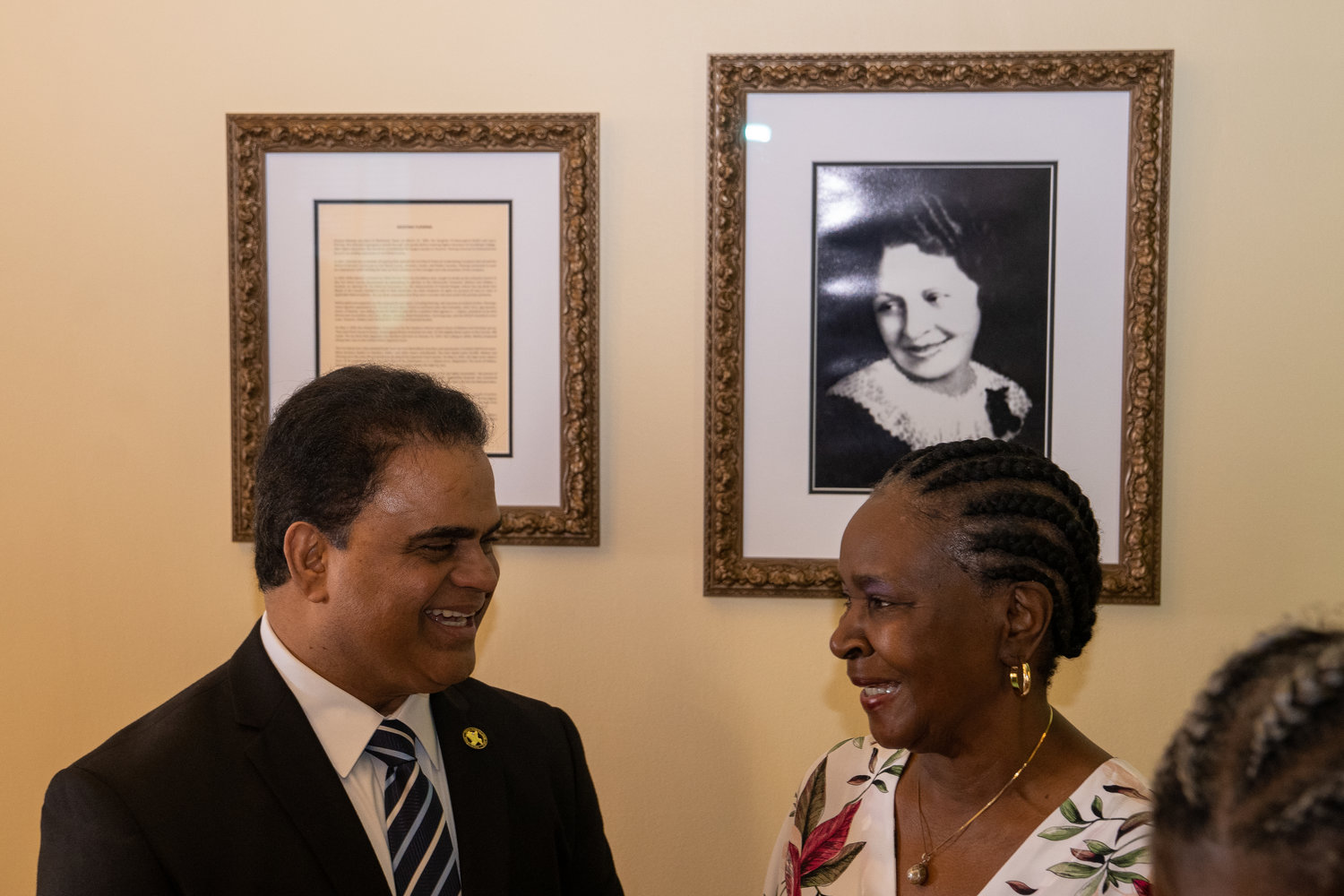Official portrait of local civil rights trailblazer unveiled in Fort Bend County
The official portrait of the late civil rights activist and businesswoman Arizona Fleming, co-founder of the Fort Bend Civic Club, was unveiled March 23 at the Historic Fort Bend County Courthouse.
This item is available in full to subscribers.
Attention subscribers
To continue reading, you will need to either log in to your subscriber account, below, or purchase a new subscription.
Please log in to continue |
Official portrait of local civil rights trailblazer unveiled in Fort Bend County
The official portrait of the late civil rights activist and businesswoman Arizona Fleming, co-founder of the Fort Bend Civic Club, was unveiled March 23 at the Historic Fort Bend County Courthouse.
Fort Bend County Judge KP George hosted the event and was joined by Carolyn Fields with the Fort Bend Black Heritage Society, Linda Coleman with the Missouri City and Vicinity Branch NAACP, Reverend William P. Fortune, pastor emeritus of Mount Carmel Missionary Baptist Church, Reverend Curtis Lucas, Pastor of Mount Carmel Missionary Baptist Church, and the great-great-granddaughters of Arizona Fleming.
During the Reconstruction era in 1867, the black population and their white political allies had consistently won county elections, and blacks often held political office. As blacks’ political power grew, the Caucasian-led Jaybird Democratic Association in Fort Bend County passed Jim Crow laws, preventing blacks from the right to vote in the county. By 1890, the Jaybirds controlled the elections through the white-only Democratic primaries and excluded Hispanics, Jews and Blacks from voting.
Arizona Fleming and others joined wealthy Kendleton farmer Willie Melton to register voters and file a lawsuit against the Jaybird Democratic Association. Fleming was able to register 400 out of 550 eligible voters. The Jaybird Democratic Association initially won the case, but the Civic Club, with the NAACP’s support, appealed the case and went to the U.S. Supreme Court.
On May 4, 1953, the Court ruled in favor of Melton and the other plaintiffs and in the process, guaranteed for the first time since 1890, the right to vote for the disenfranchised people of Fort Bend County by putting an end to all-white primaries.
“It’s remarkable how much Arizona Fleming and Willie Melton were able to achieve,” George said. “The case is called Terry vs. Adams, they did not put their name on the lawsuit because they were afraid for their life, but they did what they needed to do for justice. It is because of their vision and intention that I am standing here in front of you today.”
Fleming continued her work with the civil rights movement until her death on Jan. 18, 1976, at age 91, in Richmond. She is buried in the Mount Caramel Cemetery. Fort Bend ISD named an elementary school in Fleming’s honor in 1994. A historical marker was erected in 2009 in a local town to commemorate the historic lawsuit that changed the voting rights for blacks in Fort Bend County.
Keywords
Fort Bend County, civil rights






